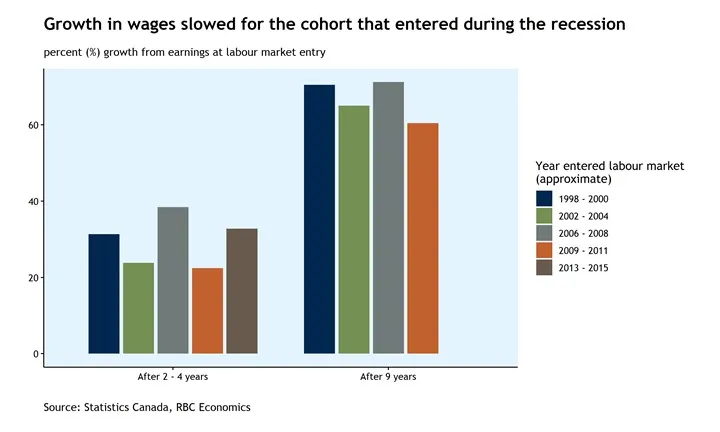Report on Sustainable Tourism Initiative in the Balearic Islands, Spain
Introduction
In response to growing concerns regarding the social and environmental impacts of tourism, the Balearic Islands have launched a new initiative titled “Balearic Islands, let’s care for them together.” This campaign, implemented by the Balearic Islands Tourism Strategy Agency, aims to promote responsible tourism practices that align with the Sustainable Development Goals (SDGs), particularly focusing on environmental protection, social inclusion, and sustainable economic growth.
Campaign Objectives and Alignment with SDGs
The initiative seeks to:
- Encourage visitors to adopt responsible attitudes toward the islands’ natural and cultural heritage.
- Strengthen the relationship between tourists and local communities.
- Promote sustainability as a core value in tourism development.
These objectives directly support several SDGs, including:
- SDG 12: Responsible Consumption and Production – by encouraging sustainable tourism practices.
- SDG 13: Climate Action – through promotion of sustainable mobility and reduction of carbon footprints.
- SDG 15: Life on Land – by conserving natural resources and biodiversity.
- SDG 8: Decent Work and Economic Growth – supporting local businesses and promoting legal accommodation.
- SDG 11: Sustainable Cities and Communities – fostering harmonious coexistence between residents and visitors.
Key Themes of the Campaign
The campaign communicates eight essential themes designed to raise awareness and promote sustainable behavior among tourists:
- Respect for the Environment: Conservation of natural resources to preserve the islands’ unique ecosystems.
- Efficient Use of Water: Encouraging mindful water consumption amid peak tourist demand.
- Combating Illegal Accommodation: Promoting legal and sustainable lodging options to protect local economies and environments.
- Promoting Sustainable Mobility: Advocating for public transport, cycling, and walking to reduce emissions.
- Respect for Local Culture and Heritage: Preserving cultural traditions and historical sites.
- Supporting Local Products: Encouraging purchase of locally produced goods to boost the local economy.
- Respect for Residents’ Peace and Rest: Minimizing noise and disturbances to maintain community well-being.
- Avoiding Excess and Fostering Harmonious Coexistence: Balancing tourism to prevent overcrowding and promote respectful interactions.
Campaign Implementation and Outreach
The campaign is strategically deployed across key entry points to the Balearic Islands, including Palma, Ibiza, and Menorca airports, as well as port terminals on all four islands. It will run throughout the main holiday season starting July, utilizing:
- Physical displays at airports and ports.
- Online platforms, including social media and sponsored Google Ads.
- Multilingual messaging in Spanish, Catalan, English, German, French, and Italian to engage a diverse international audience.
This broad outreach supports SDG 17: Partnerships for the Goals by fostering collaboration between government agencies, local communities, and international visitors.
Support and Funding
The initiative is strongly supported by the European Union’s Recovery, Transformation, and Resilience Plan—Next Generation EU—demonstrating a commitment to sustainable tourism development in line with EU and global sustainability agendas. This funding underpins efforts to:
- Balance tourism growth with environmental and social responsibility.
- Position the Balearic Islands as a model for sustainable tourism in Europe.
Community Engagement
Alongside the visitor-focused campaign, a complementary initiative titled “La raó ets tu” (The reason is you) targets local residents. This campaign encourages community participation in sustainable tourism efforts, emphasizing shared responsibility and supporting SDG 11: Sustainable Cities and Communities.
Conclusion and Future Outlook
The “Balearic Islands, let’s care for them together” initiative represents a significant advancement in promoting sustainable tourism that benefits both inhabitants and visitors. By integrating the principles of the Sustainable Development Goals, the Balearic Islands are setting a precedent for responsible tourism management that preserves natural beauty, respects cultural heritage, and supports local economies.
Moving forward, the region aims to continue fostering a tourism model that prioritizes environmental stewardship, social inclusion, and economic sustainability, ensuring a vibrant and resilient future for the Balearic Islands.
References
- Balearic Islands Tourism Strategy Agency
- Balearic Government
- European Union (EU)
- United Nations Organization (UNO)
1. Sustainable Development Goals (SDGs) Addressed in the Article
- SDG 12: Responsible Consumption and Production – The article emphasizes promoting responsible tourism, efficient use of water, combating illegal accommodation, and encouraging sustainable mobility.
- SDG 11: Sustainable Cities and Communities – Focus on maintaining quality of life for residents, respecting local culture and heritage, and avoiding overcrowding.
- SDG 14: Life Below Water – Indirectly addressed through conservation of natural resources and the islands’ natural beauty, which includes marine environments.
- SDG 15: Life on Land – Conservation of natural resources and respect for the environment.
- SDG 17: Partnerships for the Goals – Collaboration with the European Union’s Recovery, Transformation, and Resilience Plan and involvement of local communities and visitors.
2. Specific Targets Under Those SDGs Identified in the Article
- SDG 12 Targets:
- Target 12.8: Ensure that people everywhere have the relevant information and awareness for sustainable development and lifestyles in harmony with nature (campaign raising awareness among tourists).
- Target 12.5: Substantially reduce waste generation through prevention, reduction, recycling, and reuse (combating illegal accommodation and promoting sustainable lodging).
- SDG 11 Targets:
- Target 11.4: Strengthen efforts to protect and safeguard the world’s cultural and natural heritage (respect for local culture and heritage).
- Target 11.7: Provide universal access to safe, inclusive and accessible green and public spaces (promoting sustainable mobility and reducing overcrowding).
- SDG 14 Targets:
- Target 14.1: Prevent and reduce marine pollution of all kinds (implied through conservation efforts of natural beauty including marine areas).
- SDG 15 Targets:
- Target 15.1: Ensure the conservation, restoration and sustainable use of terrestrial and inland freshwater ecosystems (respect for environment and natural resources).
- SDG 17 Targets:
- Target 17.17: Encourage and promote effective public, public-private and civil society partnerships (collaboration with EU funding and local stakeholders).
3. Indicators Mentioned or Implied to Measure Progress Towards the Identified Targets
- Visitor Behavior and Awareness: Measurement of visitor engagement with the campaign messages (e.g., surveys on responsible behavior, social media analytics on campaign reach).
- Water Consumption Rates: Monitoring water usage during peak tourist seasons to assess efficiency improvements.
- Illegal Accommodation Rates: Tracking the number of illegal short-term rentals to evaluate success in combating illegal lodging.
- Use of Sustainable Mobility: Data on public transport usage, cycling, and walking among tourists.
- Resident Quality of Life Indicators: Surveys or studies on residents’ perceptions of tourism impact, noise levels, and overcrowding.
- Economic Support for Local Products: Sales data of local goods to tourists as an indicator of support for local businesses.
- Partnership and Funding Utilization: Monitoring the implementation and impact of EU-funded initiatives for sustainable tourism.
4. Table of SDGs, Targets, and Indicators
| SDGs | Targets | Indicators |
|---|---|---|
| SDG 12: Responsible Consumption and Production |
|
|
| SDG 11: Sustainable Cities and Communities |
|
|
| SDG 14: Life Below Water |
|
|
| SDG 15: Life on Land |
|
|
| SDG 17: Partnerships for the Goals |
|
|
Source: travelandtourworld.com







